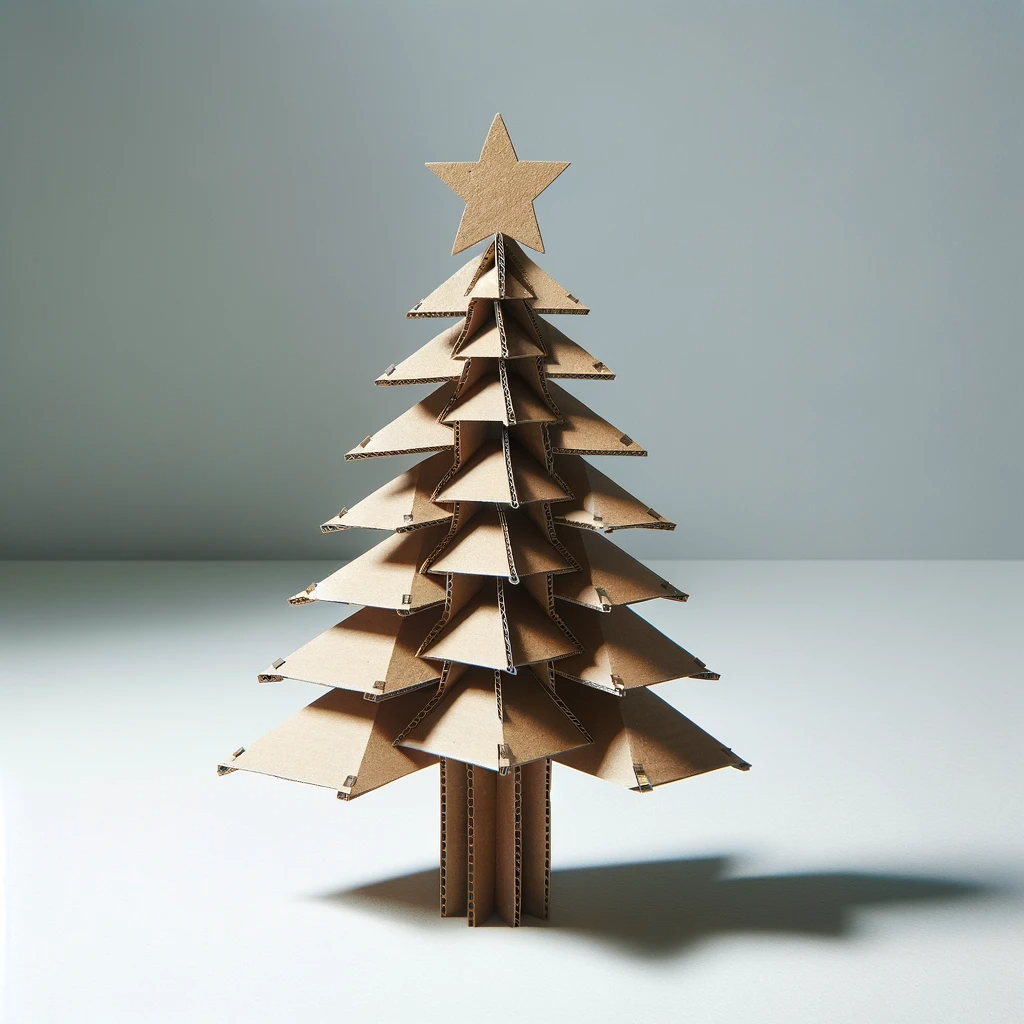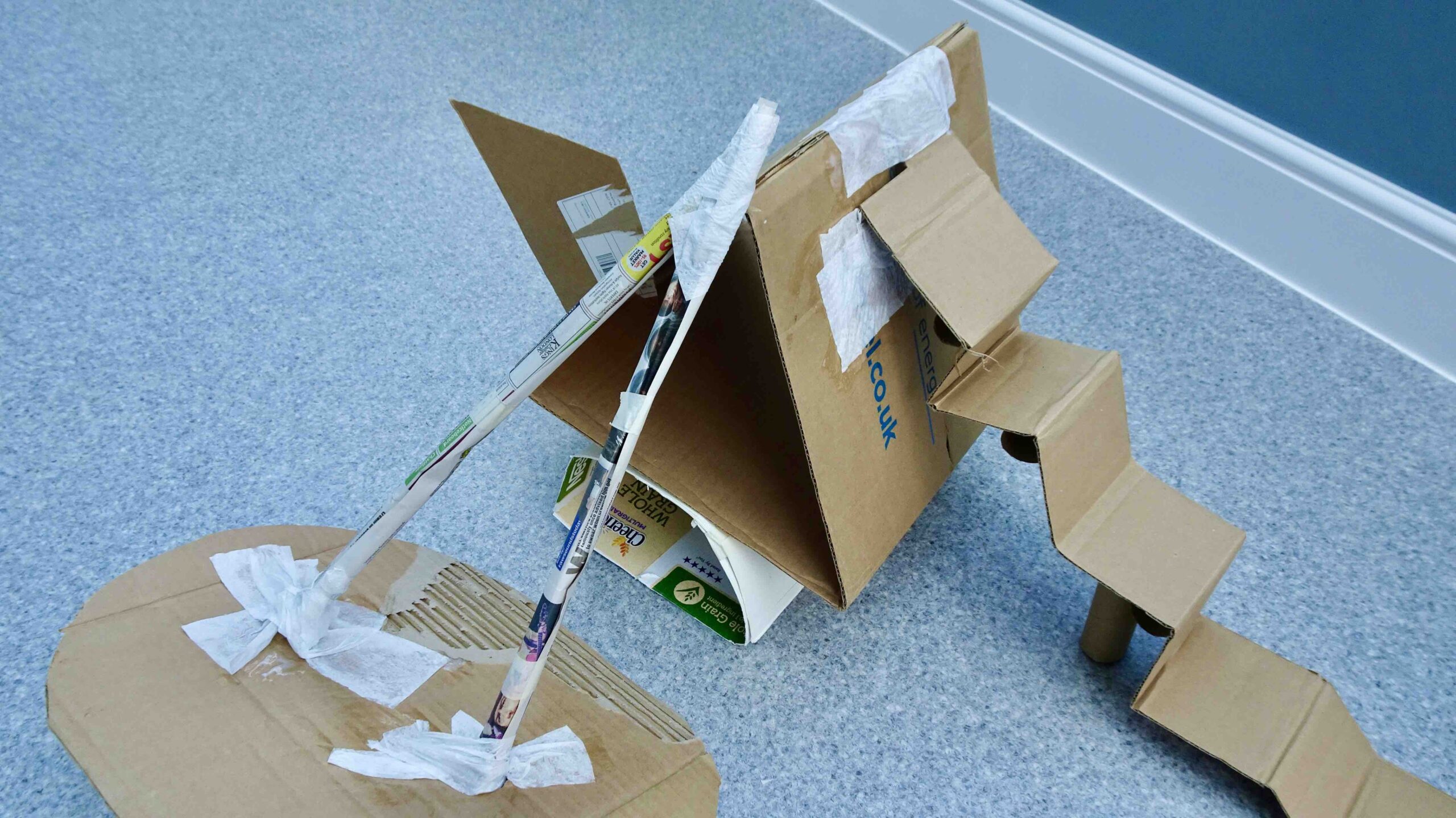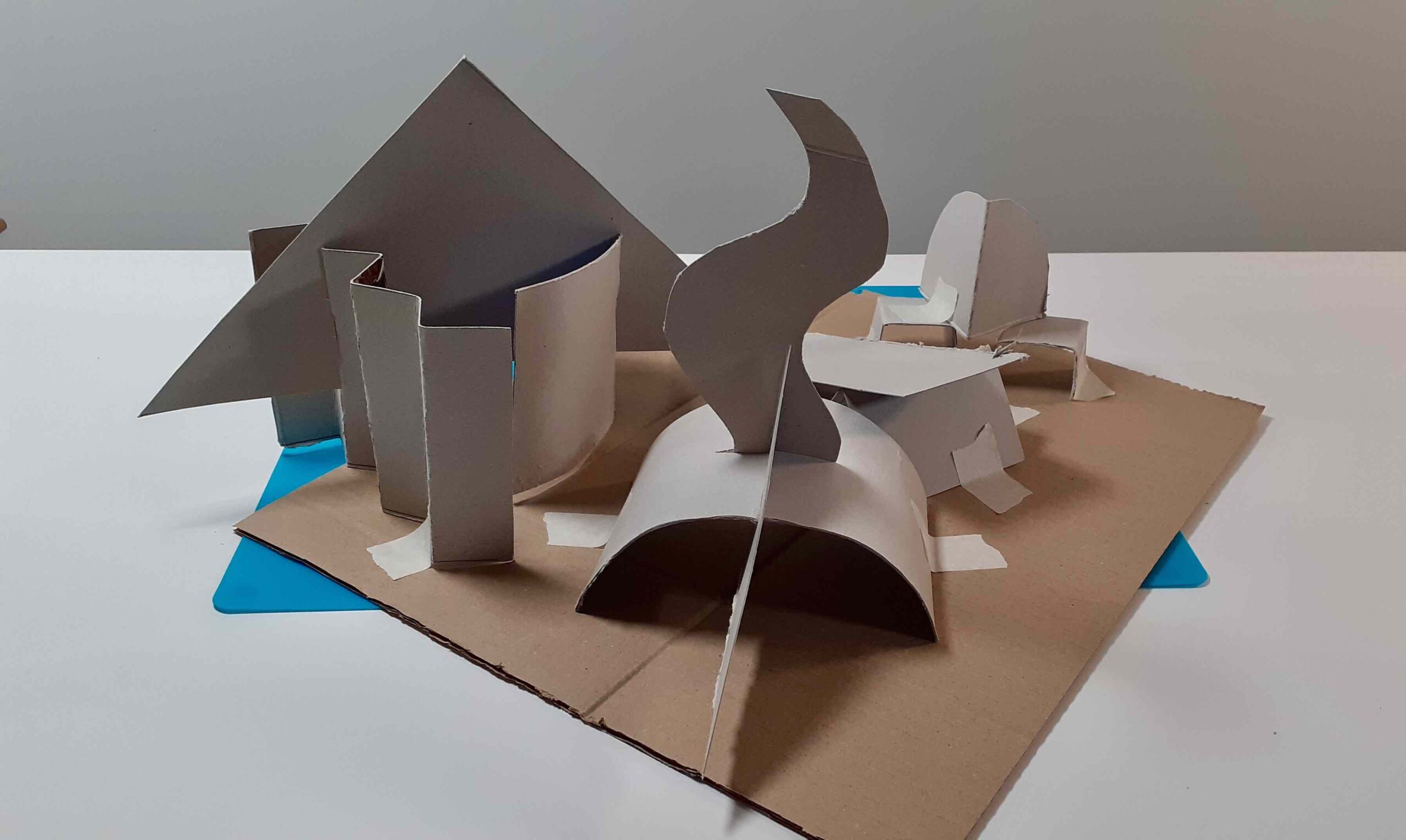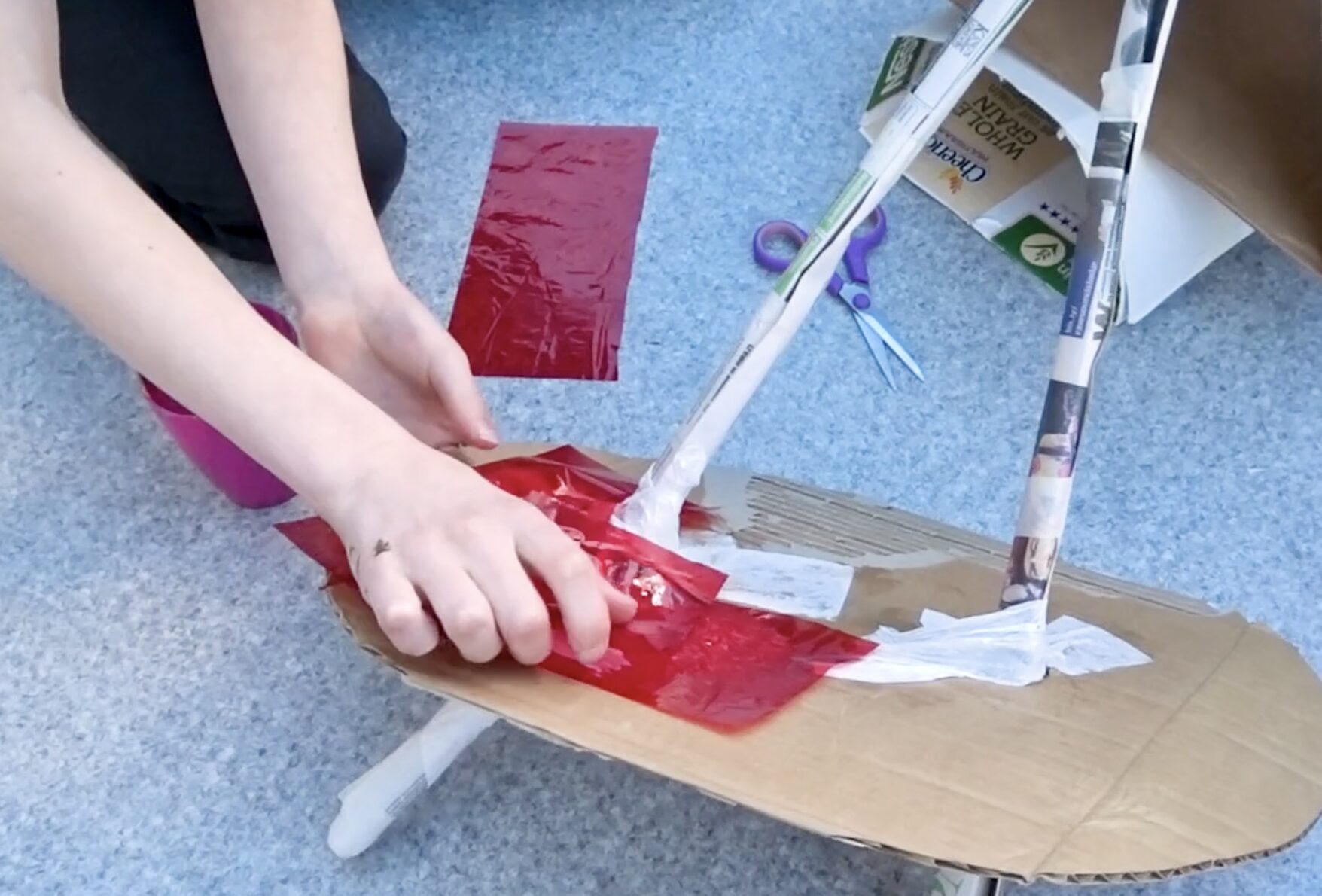Learning objective
- To develop ideas for 3D artwork.
Success criteria
- I can identify 2D shapes in photos of
This content is for subscribers only. Join for access today.
National curriculum
Art and design
Pupils should be
This content is for subscribers only. Join for access today.
Cross-curricular links
Mathematics
Geometry – properties of shapes
This content is for subscribers only. Join for access today.
Before the lesson
This content is for subscribers only. Join for access today.
Lesson plan
Recap and recall
Arrange the children into pairs and hand out a whiteboard and pen to each pair. Display the Presentation: Joining techniques. Ask the children to think about their challenge of making a free-standing sculpture from Lesson 2: Constructing in 3D and all the different joining techniques they used. How many joining techniques can they remember? Ask…
This content is for subscribers only. Join for access today.
Extended-mode explainer videos
How to extend your display to view the lesson page and preseantion mode simultaneously. Choose your operating system below to watch the video
If you need further support with extending your display,
please contact [email protected].
Extended-mode explainer video: For Mac
Extended-mode explainer video: For Windows
Adaptive teaching
Pupils needing extra support
Could use different colours to identify positive and negative spaces; may find it easier to colour in the solid shapes and outline the negative spaces; may find it easiest to stick to drawing the positive shapes they see in the cardboard sculpture (the drawing challenges are ordered in difficulty so pupils can work through them at their own pace); could keep their plan for their paired sculpture very simple and focus on recreating just the big shapes from a photo of playground equipment, focussing on how these would be joined to be free-standing.
Pupils working at greater depth
Should be encouraged to look for shapes in the negative space and exaggerate them when drawing the cardboard structure (ask things like ‘What shape does that remind you of? Can you make the shape clear in your drawing?’); could be encouraged to play around with the arrangement of the shapes they draw, perhaps leaving gaps between positive and negative shapes they have identified to enhance the abstract effect of their drawings; should think about how achievable their ideas are when planning their sculptures and adapt them if needed, based on decisions about how parts will be joined or what materials will be used.
This content is for subscribers only. Join for access today.
Assessing progress and understanding
Pupils with secure understanding indicated by: being able to identify
This content is for subscribers only. Join for access today.
Vocabulary definitions
-
abstract
Art where the subject doesn't necessarily look like it does in real life.
-
negative space
The space around and between objects, e.g. the background.
This content is for subscribers only. Join for access today.
Example work

Montem Academy, Slough

Montem Academy, Slough

Montem Academy, Slough

Montem Academy, Slough

Montem Academy, Slough

Montem Academy, Slough

Montem Academy, Slough
This content is for subscribers only. Join for access today.





